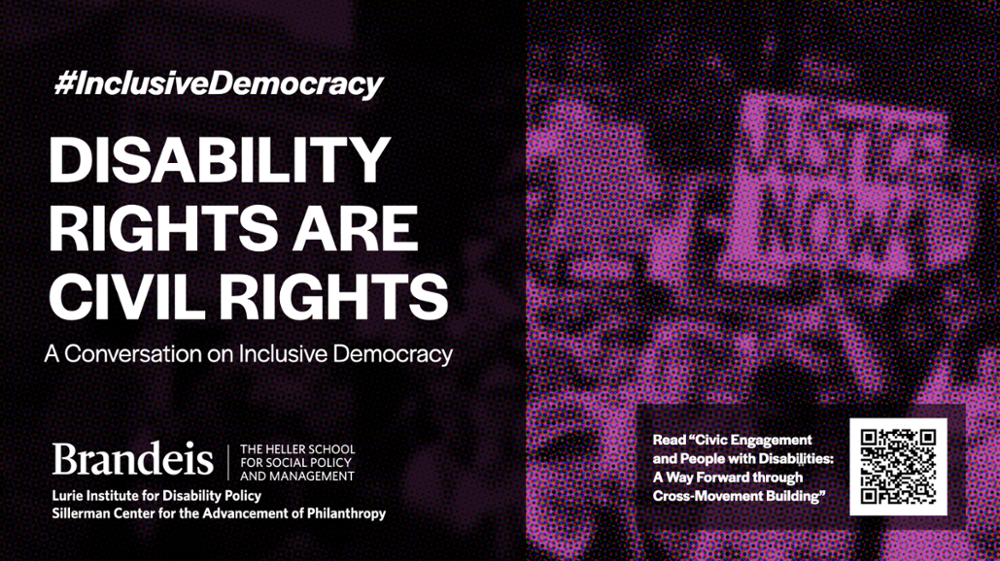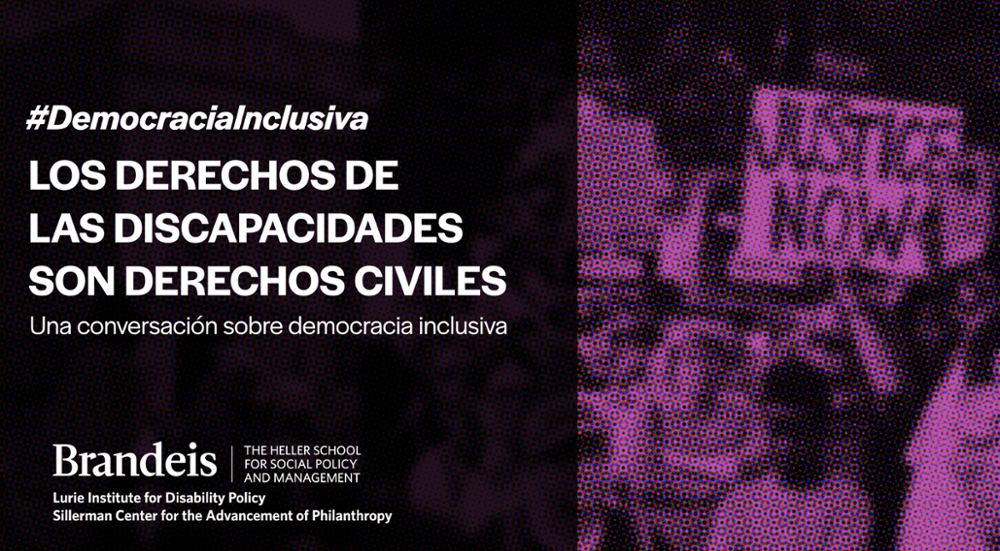A Conversation on Inclusive Democracy
View recording with English captions
Ver grabación con subtítulos en español
View PDF one-pager summary of event
On October 8, 2020, the Lurie Institute for Disability Policy and the Sillerman Center for the Advancement of Philanthropy hosted “Disability Rights Are Civil Rights: A Conversation on Inclusive Democracy,” a panel discussion featuring Rebecca Cokley of the Center for American Progress, Claribel Vidal of the Ford Foundation, and Sandy Ho of the Lurie Institute.
The Covid-19 pandemic and other current events have underscored the importance of encouraging people with disabilities to help make decisions for and about their communities, and of helping organizations sup- port disabled people in making those decisions.
Panelists suggested that organizations take the following steps to support people with disabilities as civic participants:
- Work with other people and organizations with similar causes to yours. For example, a group of voting- rights activists worked with disability groups to protect people’s right to vote in Texas.
- Understand how ableism intersects with other forms of discrimination. People don’t lead single-issue lives. A disabled person may also deal with racism, classism, misogyny, homophobia, transphobia, or xenophobia.
- Learn about disability and integrate it into your organization’s mission. When the Ford Foundation started supporting disability-rights organization, it included disability in its other portfolios, too, including reproductive health and civic engagement.
“Sometimes people take the idea that disability rights are civil rights for granted. People don’t see the connection until after the fact. For example, 40% of US COVID-19 deaths are disabled people in institutions.”
—Sandy Ho, Lurie Institute for Disability Policy
“[The Ford Foundation] wanted to make sure disability wasn’t just an add-on; we wanted to integrate it in our other portfolios, including mass incarceration, reproductive justice, arts, and civic engagement.”
—Claribel Vidal, Ford Foundation
“Disabled people are refusing to be quiet, and we are refusing to be ignored. It’s altered the power dynamics in a lot of these spaces in a way that’s really interesting.”
—Rebecca Cokley, Center for American Progress


